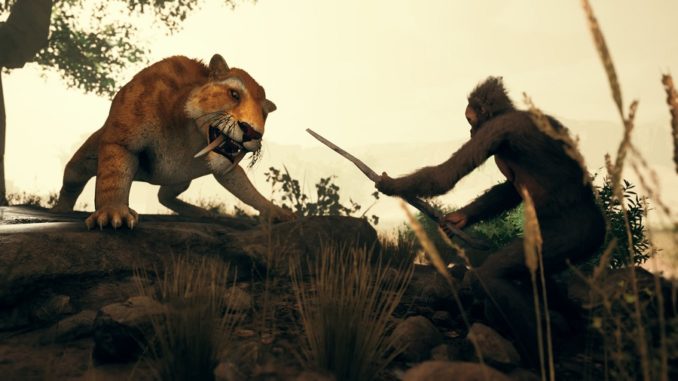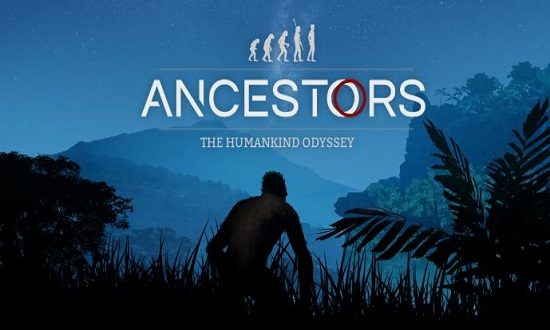

If you die, you are simply shifted to another clan member and can continue. As you make discoveries you become more intelligent and capable and get new skills (make bedding or medicinal plants). It's a little like Assassin's Creed in this way. This progress opens up more areas to explore. You can also use your primate intelligence to pinpoint items in the world and locate new food or tools. You can use your heightened senses to listen out for predators, a lost clan members, or to hear outsiders who may be recruited. It's a dangerous world, but one full of opportunities as well. But you can calm and overcome this by finding glowing orbs of light. Being hunted by predators will put you in a fear state.

You also have to manage your mental state. You can fight other animals but will suffer injuries if not careful. These interactions and exploration isn't directed. Picking up rocks to open coconuts for instant, or to use as a weapon. As you do, you also need to be aware of threats, food and other items that may be useful to interact with. As you navigate the African jungle you need to think tangentially about how to cross rivers, ravines and other obstacles. You guide a primate from a third-person perspective while you manage health, drinking, and sleeping. You are left to discover how to progress and develop your community of primates. Information about systems are intentionally withheld to give the feeling of stumbling your way into the evolutionary future. Play is intentionally open ended and not prescriptive. It's unusual not only for this scenario, but how committed it is to recreating the futility and frustration of this slow progress alongside the joy and exhilaration of developing civilisation.

But rather than controlling a specific character, you guide an entire lineage of primates trying to survive in prehistoric Africa and facilitate its evolution. Ancestors: The Humankind Odyssey is a survival adventure.


 0 kommentar(er)
0 kommentar(er)
